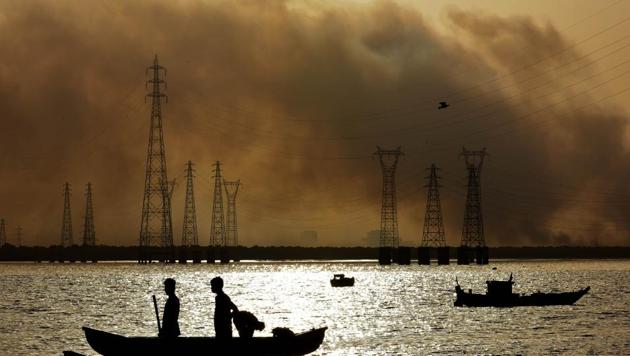‘Mumbai-Delhi spent Rs49,0559 crores to treat diseases due to poor air in 2015’
Deaths due to air pollution in Mumbai and Delhi have doubled over the last 25 years, and together with chronic bronchitis, it accounts for 95% of premature deaths in two of India’s biggest cities, found a study by the Indian Institute of Technology – Bombay (IITB)
Deaths due to air pollution in Mumbai and Delhi have doubled over the last 25 years, and together with chronic bronchitis, accounts for 95% Disability Adjusted Life Years (DALYs) in two of India’s biggest cities, found a study by the Indian Institute of Technology – Bombay (IITB). DALYs is the sum of years of potential life lost due to premature mortality, and the years of productive life lost due to disability.

The study estimated that if exposure to fine suspended particulate matter of size less than 10 microns (PM10) prematurely killed 19, 291 people in Mumbai in 1991, the number jumped to 32,014 in 2015. In Delhi, premature mortality increased to 48,651 in 2015 from 19,716 in 1995.
In Mumbai, the annual average PM10 decreased from 142 micrograms per cubic meter (ug/m3) in 1995 to 137 μg/m3 in 2015. In Delhi, however, it increased from 204ug/m3 in 1995 to 263 μg/m3 in 2015. The permissible level for PM10 is 20 micrograms per cubic meter (ug/m3), as per the World Health Organisation.
Exposure to high levels of PM10 – harmful solid and liquid particles floating in the air – leads to respiratory and cardiovascular diseases, and premature death.
The cost of treating diseases caused by air pollution also doubled for people from Mumbai and Delhi in the same period — from Rs24,816 crores to Rs49, 0559 crores – that’s 1.01% of India’s gross domestic product.
“Globally, Mumbai and Delhi are among the 20 most polluted cities, a combined result of vast urbanisation, old automobiles, outdated industrial plants, and lack of government regulation,” said Kamal Jyoti Maji, lead investigator, Centre for Environmental Science Engineering, IIT-B.
The team used epidemiology-based exposure-response function – a mathematical equation – to calculate premature mortality and morbidity rates. Estimates of mortality and morbidity cases are based on the level of exposure to concentration of particulate matter in Delhi and Mumbai.
The increase in the premature mortality rates also coincides with the rise in cost of treatment for 18 diseases that are caused with exposure to elevated PM10 levels. If the annual spend is converted into Indian currency, after taking the US-India currency exchange rate as Rs 46 for a dollar in 2005, Mumbaiittes spent 70% more on medicines, doctors and hospitalisation between 1991 and 2015 — from US$ 2680.87million (Rs12,323 crores) to US$ 4269.60 million (Rs19,640 crores). In Delhi, the cost went up to more than double during the same period – US$ 2714.10 million (Rs12,484 crores) to US$ 6394.74 million (Rs29, 415 crores).
“Determining a quantitative value of air pollution-related health impacts is becoming a vital element in evaluating the economic cost. This will help pollution control authorities in Mumbai and Delhi to take decisions on cost–benefit analysis to pollution control measures,” said Maji.
READ MORE
Delhi’s air pollution ‘very serious’ problem, find solution at the earliest, says SC
Mumbai fares better than Thane, Panvel and Navi Mumbai in air pollution survey




